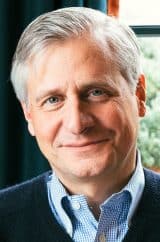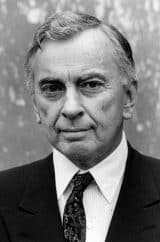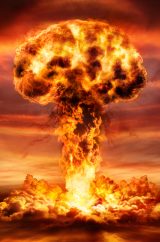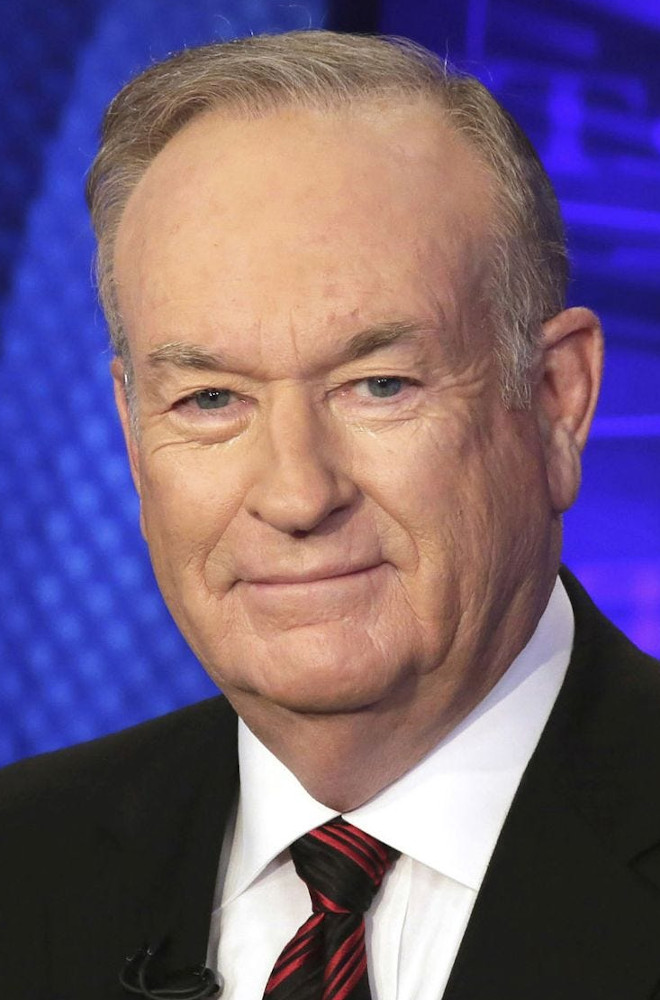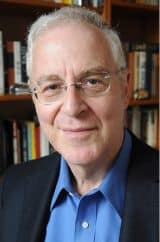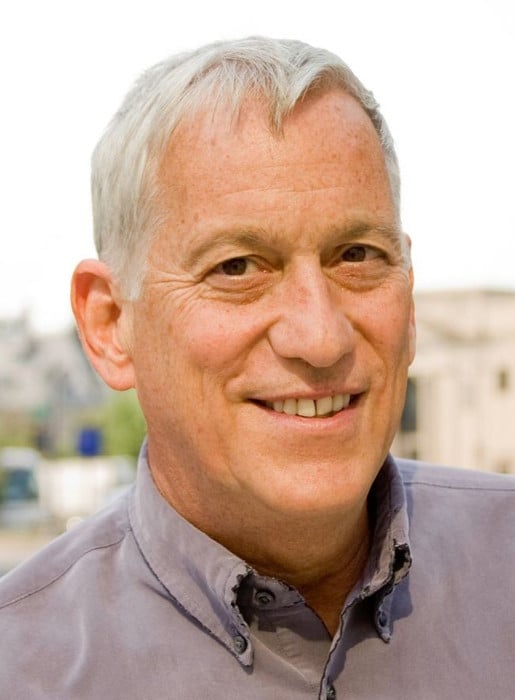 Unique Talents
Unique Talents
Intellectually, Walter Isaacson is a serious heavy hitter. At the same time, he has had an extensive career in journalism. These two facts combined give him a rare skill at researching and understanding complex topics, then explaining them in a way that ordinary people can comprehend fully.
Unusually for such a prolific writer, he has also occupied several responsible positions during his career – he understands power and the effect it can have on people. This combination of skills allows him to bring history to life in a way few other writers can. The most popular Walter Isaacson books read like novels, yet are firmly rooted in historical fact.
Digestible Lessons in History
Many of the best Walter Isaacson books are really all about how the modern world came to be, from the all-pervasive internet to the shape of modern geopolitics. For the most part, though, they’re no more difficult to read than an article in Time magazine (of which Isaacson was chief editor).
These stories are commonly told from the viewpoints of the people involved. This makes the best books by Walter Isaacson surprisingly relatable, while also being packed with interesting facts and insights. So, with that in mind, let’s take a look at my 10 favorite Walter Isaacson books, ranked in order of which I enjoyed most.
Best Walter Isaacson Books
| Photo | Title | Rating | Length | Buy |
|---|---|---|---|---|

|
Leonardo da Vinci | 9.94/10 | 624 Pages | Check Price On Amazon |

|
Steve Jobs | 9.88/10 | 672 Pages | Check Price On Amazon |

|
Einstein | 9.82/10 | 704 Pages | Check Price On Amazon |

|
Benjamin Franklin | 9.76/10 | 608 Pages | Check Price On Amazon |

|
The Code Breaker | 9.92/10 | 552 Pages | Check Price On Amazon |
Leonardo da Vinci

 A Literal Renaissance Man
A Literal Renaissance Man
Back in the 14th century, the level of specialization most jobs require today simply wasn’t dreamed of. Instead, intellectuals tried to embrace all knowledge, learn every skill, and develop all of their faculties to the maximum. One of the most famous of these, of course, was Leonardo da Vinci: artist, engineer, mathematician, poet, biologist, musician, architect, plus a couple of other things on the side.
He also lived quite a while ago: most of his own notebooks have been lost, and much of what others wrote about him has to be taken with a grain of salt. Needless to say, he’s a challenging subject for any biographer who doesn’t just make stuff up. Some authors, like Dan Brown, have done exactly that purely for entertainment value. What makes Leonardo da Vinci possibly the single best Walter Isaacson “novel” (loosely speaking) is his respect for honest research, honed by his experience as a journalist and historian.
The Human Touch
There is no shortage of books on Leonardo da Vinci. One of their common flaws, which Isaacson manages to avoid, is dwelling on his genius rather than the man himself. Da Vinci was, according to many accounts, difficult to work with. He experienced terrible mood swings and left behind a long list of dissatisfied clients and unfinished works. He had little formal education, having been disowned by his father as a child.
Perhaps because of this, he felt criticism keenly and refused to share many of his most important thoughts with the intelligentsia of his time. As in all the top Walter Isaacson books, the author doesn’t try to gloss over these flaws. Instead, he takes pains to sketch a candid portrait of a remarkable person who was blessed and cursed with inspiring, boundless curiosity.
Steve Jobs

 A Close Perspective
A Close Perspective
This book is Jobs’ only authorized biography; it says a great deal that he chose Isaacson for the task. He had already published Einstein, Kissinger: A Biography, The Wise Men, and Benjamin Franklin. Jobs must have known that Isaacson didn’t have a reputation for sugarcoating the facts. Despite this, he granted the author considerable freedom as to the choice of content, not even reading the book before publication.
Source material for Steve Jobs consisted of hours of interviews between Isaacson and Jobs himself, plus more than a hundred of his acquaintances, family members, admirers, and critics. The author did a great job of organizing all this information (over 600 pages) into a logical, coherent narrative that’s a joy to read.
Not Overly Flattering
The picture of Steve Jobs that emerges from this book is less than complimentary. Everything in his life, from his personal hygiene to his difficult family relationships to his frankly crooked actions in business, is simply described, without much effort at justification. Previously unknown details are added not for the sake of controversy, but completeness.
The tech entrepreneur was, in many ways, a terrible person. He didn’t lack all redeeming qualities, though, just like Benjamin Franklin and Einstein weren’t entirely perfect. Steve Jobs very quickly became one of the best-selling Walter Isaacson books not only because it was launched only weeks after the subject’s death, but because it is so well-balanced. Isaacson doesn’t insist that you either love or hate Jobs, he only asks that you try to understand this multi-faceted and undeniably brilliant man. We wouldn’t have the kind of technology we do today in nearly the same way if it weren’t for his off-beat approach to it.
Einstein

 Einstein the Eccentric
Einstein the Eccentric
Like many of the subjects of Walter Isaacson’s best books, Albert Einstein is distinguished not just by his intelligence. Rather, like Da Vinci, Franklin, and others, what made him unique was his willingness to challenge conventional wisdom and live life on his own terms.
Einstein’s somewhat childlike yet also sophisticated outlook on the world would almost inevitably make for an interesting, sympathetic biography. Isaacson goes even further: his Einstein is immensely engaging and readable, despite being over 500 pages in length.
Probing the Mind of Genius
There’s also much more to Einstein than simply entertainment value. As usual with the best-rated Walter Isaacson books, the research is absolutely meticulous. You’ll certainly find a few well-known myths and misattributed quotations debunked. The book isn’t simply a list of facts, dates, and interesting stories, though. In a philosophical sense, it asks the question “What made Einstein tick?” In Isaacson’s view, it is precisely his nonconformist nature that led to his groundbreaking theories.
Many people will find the explanation of these to be a little tedious and not all that relevant to Einstein’s personality or life journey. They’re not too technical, though, and are arguably necessary to understand just how great his contributions were. As you may or may not know, his famous theories on special and general relativity were only a relatively minor part of his work and had little to nothing to do with his winning the Nobel Prize in 1922.
Benjamin Franklin

 A Man for All Seasons
A Man for All Seasons
Like Leonardo da Vinci, Franklin seems to have had the intelligence, curiosity, and determination to excel at everything he turned his hand to: business, diplomacy, statesmanship, public administration, science, philosophy, and invention. As this book’s title alludes to, he is also sometimes called “The First American”.
In a sense, he indeed defined and personified the national character of the fledgling republic. He was, for instance, very much a self-made man. His family was too poor to afford more than two years of schooling for young Benjamin, yet he excelled through perseverance, hard work, and creativity. These are some of the qualities he praises and encourages in his homey writings.
Unvarnished History
One of the few regular complaints in Walter Isaacson’s book reviews is that he shows a little too much sympathy and warmth for his subjects. This isn’t that big of a deal: he’s always chosen remarkable people for his biographies. Some, like Henry Kissinger and Steve Jobs, remain controversial, yet are also sympathetic in many ways. No author whose done the in-depth research Isaacson does can end up hating them.
This doesn’t stop Isaacson from being objective. The Franklin he describes is sometimes a very different figure from the one you may have come to know from high school history. For example, despite often writing about “virtue” (in both the political and religious sense), Franklin was anything but a saint in his private life and a complete failure as a family man. What makes this perhaps the best Walter Isaacson book is that, like Gore Vidal’s more fictionalized biography of Aaron Burr, he presents him as a whole man and a product of his time. It’s also just about as charming as Franklin himself was, with little time spent on everyday minutiae just for the appearance of authenticity.
The Code Breaker

 A Brave New World
A Brave New World
If asked which technology defines the early 21st century, most people would say electronics, specifically the infrastructure behind the internet. Developments in genetics have progressed at an astounding (and alarming) pace at the same time the web was developing, though. It remains in the background mostly because only a few thousand people around the world truly understand the science and implications involved.
Dr. Jennifer Doudna’s life and work form the perfect vehicle for exploring these issues. She has made several groundbreaking discoveries in the field of biochemistry: she doesn’t just know science, she creates it. In particular, she helped develop the highly efficient gene editing technique that won her a Nobel Prize. She has also publicly called for a total moratorium against its widespread use until its ethical and practical concerns are better understood.
Science vs Politics
Doudna has also warned of the consequences of American politicians sidelining or ignoring scientists. This is pretty significant, given that she laid much of the groundwork that led to the rapid development of the covid-19 vaccine. This general theme, though rarely in the foreground, kind of forms the premise of The Code Breaker, Walter Isaacson’s best book on such an underappreciated subject. Should we trust in science we don’t come close to understanding? Should the professionals who do grasp it take their moral cues from the ignorant?
Most of the book, however, focuses on Doudna and her colleagues’ work and struggles. Many of these chapters are more interesting than you can probably imagine. At the same time, the scientific explanations they’re interspersed with are sometimes a little dense. If you’re not up for this challenge, you’ll probably enjoy another of Isaacson’s books more.
The Innovators

 On the Shoulders of Giants
On the Shoulders of Giants
In his biography of Steve Jobs, Isaacson shows how one man revolutionized the way complex electronics are designed and marketed. Maybe as a result of the research he did for that book, the author realized that well-known names like Jobs, Gates, and Musk (whose biography is Walter Isaacson’s latest book) aren’t the whole story. They’ve played an important role, certainly, but in many cases only put together tools that were already available in a new and useful way.
Instead, this story starts in the mid-19th century. Electricity itself was only barely understood, yet mathematicians like Ada Lovelace and Charles Babbage were already laying the foundations of modern computer programming.
About Innovators, Not Innovations
Any geek will appreciate the depth and detail with which this history is presented. The Innovators isn’t exactly a technical manual, though, and wasn’t written for computer scientists. The closest, though far less ambitious, book I can think of right now is Mother Earth, Mother Board by Neil Stephenson.
Instead of describing the technology in painstaking detail, this book tries to draw parallels, distinctions, and connections between the major figures behind today’s internet, cloud services, and nascent quantum computers. What characteristics distinguish a brilliant inventor – a “hacker” – from a methodical but uninspired engineer? Who built on the work of whom? Why did some fail, while others who tried almost the same thing succeeded? Anyone who’s interested in technology, innovation, history, or all three should be asking themselves these questions.
The Wise Men

 The Author’s First Serious Book
The Author’s First Serious Book
By the mid-1980s, Isaacson was becoming established as a major journalist. His first book, Pro and Con, was reasonably well received but neither a classic nor a bestseller. At that time, it was common for journalists at that stage of their career to take on a serious challenge: an academically respected book that also had mass-market appeal. This project turned into The Wise Men and is still ranked among the top Walter Isaacson books.
Unlike in some of this author’s works, he (or perhaps his co-author, Evan Thomas) allowed less of his personality to shine through. Whether this is a good thing is a matter of personal preference: some people enjoy reading the opinions and insight of an author; others prefer to make up their own minds.
In Smoky Back Rooms
The “six wise men” of the title were diplomats, public officials, and prominent citizens with little official power. Yet they often shaped the policies espoused by their nominal superiors, even presidents. Throughout most of their lives, they were on the political sidelines, yet wielded enormous influence.
Being friends, from wealthy families, and educated at the best schools, they also shared certain values. Most notably, these included mistrust of Communism, respect for Old-World values, and an appreciation of “getting things done” in the most pragmatic way possible. The latter point often included making use of personal connections. It would be difficult to find another half-a-dozen people whose personalities had such a major effect on history, especially at the beginning of the Cold War. In all, this book left me with the impression that making political decisions behind the scenes is not always a bad thing – but this depends heavily on the characters of the people involved.
Kissinger

 Hero to Some, Villain to Others
Hero to Some, Villain to Others
Even today, Kissinger is widely respected as well as thoroughly despised, both in the United States and abroad. As a Jewish refugee who fled Nazi Germany as a teenager, he had a lifelong hatred of Authoritarianism. At the same time, he used his power as Secretary of State to support Fascist regimes in countries such as Chile and Argentina.
Above all, he believed in realpolitik: advancing American interests regardless of any warm-and-fuzzy ideological notions. Without a doubt, he was one of the most effective and active U.S. public officials ever. It’s equally certain that he caused immense damage to American prestige as a nation that values human rights and the rule of law. He was awarded a Nobel Peace Prize; under different circumstances, he may equally well have been convicted of war crimes.
Drowning in Detail
Controversial, well-known, complicated: Kissinger makes the perfect kind of fodder for one of Isaacson’s biographies. The author’s reputation as a competent and fair journalist also allowed him incredible access to public figures who knew and worked with Kissinger, as well as a minor treasure trove of Kissinger’s own notes.
If this book has one flaw, it’s that it’s too comprehensive. Few readers today will have in-depth knowledge of the Cold and Vietnam Wars, the Israeli-Palestinian conflict, and the general state of geopolitics during the 1970s. Fewer will have the desire to learn. Yet, along with numerous personal anecdotes, these details are essential to gaining any kind of true understanding of Kissinger as a person and politician – something that takes more than 900 pages to elucidate.
American Sketches

 Miniature Biographies
Miniature Biographies
Isaacson has had the opportunity to meet a great many important and interesting people during his career. All of them don’t, perhaps, merit a full biography, particularly one of the immense tomes this author likes to write. Yet many of them possess character facets, experiences, and points of view that need to be shared.
These are delivered in a series of shorter pieces, mainly essays of fewer than twenty pages (many previously published in magazines, journals, and other books). Their subjects cover a period of time stretching from the American Revolution up to nearly the present day. Several modern figures are described using their own words, as uttered during interviews with Isaacson himself.
A Personal Journey
This book also contains the author’s own reflections on life and his career in writing as well as other fields, including his involvement in the reconstruction of New Orleans after Hurricane Katrina left almost 400,000 people homeless.
Even in the essays that don’t involve him directly, Isaacson injects a lot of himself into the narrative. Because of this, dedicated fans can learn a great deal about how this author thinks and what’s important to him. In some ways, his interest in and affinity with famous, powerful individuals actually detracts from the final result. (Or, perhaps, these individuals were just what people wanted to read about during Isaacson’s employment with Time magazine). At times, American Sketches gets just a little bit repetitive, as if Isaacson were describing the same person using different names and under different circumstances.
Profiles in Leadership

 Variations on a Theme
Variations on a Theme
In most of Isaacson’s books, he delves into the personalities of individuals, trying to determine which characteristics and values made them successful. Profiles in Leadership takes a different approach, collecting biographical sketches of several influential figures and trying to connect the dots between them.
These thirteen essays were written by respected historians other than Isaacson, who served as editor of this book. Some compare the different approaches of two or more famous leaders, while others examine differing evaluations of the same person. As Isaacson points out in the introduction, what we call “leadership” is a pretty slippery concept. The same person may show completely different leadership styles in particular contexts. In other cases, several leaders may attempt to follow the same general principles, with some succeeding and others floundering.
Varied But Similar Viewpoints
The differing opinions, styles, and outlooks of the various authors make for an interesting read. The leaders each chose to focus on are from diverse areas, too: politicians, businessmen, generals, and even religious figures. Some of the names will be instantly recognizable, while others had less illustrious careers.
One weakness of this book, which international readers are sure to point out, is that both the historians and their subjects are all Americans. They therefore approach the complex subject of leadership mainly from one cultural perspective. There may be valid reasons for this, but it also limits this book’s scope. Another flaw is that it was written by historical scholars, hesitant to speculate and with little psychological training. All in all, it’s worth reading if you’re interested in personalities and events of the past. If you hope to learn something about leadership, however, you’d do well to pick up something by Simon Sinek instead.
Final Thoughts
It’s very hard to find a single entry on the Walter Isaacson book list that’s actually bad. Each is objective, filled with shrewd analysis and insight, and based on thorough research. That having been said, they’re not for everyone:
Though generally readable, they also deal with complex characters, events, and ideas. Most are at least 500 pages: if you don’t really want to learn more about a particular historical figure, you may want to choose something lighter (and cheaper!). If you enjoy exploring complicated issues in depth, though, Isaacson is your guy. As one of the subjects of his biographies said: “Everything should be made as simple as possible, but no simpler.” Isaacson leaves out the nonessential facts, but this still leaves a lot of important stuff to get through.
Michael Englert
Michael is a graduate of cultural studies and history. He enjoys a good bottle of wine and (surprise, surprise) reading. As a small-town librarian, he is currently relishing the silence and peaceful atmosphere that is prevailing.
